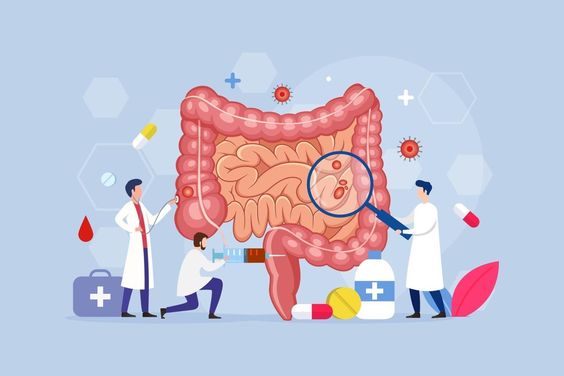Introduction
Colitis is a general term for inflammation of the colon. The colon, also known as the large intestine, is the final part of the digestive system. It is responsible for absorbing water and electrolytes from digested food and forming stool.

Colitis can have various causes, including infection, inflammatory bowel disease (IBD), and inadequate blood supply. Depending on the cause, colitis can be acute or chronic, and its symptoms can range from mild to severe.
What are the Symptoms of Colitis?
Common symptoms of colitis include:
- Abdominal pain and cramping: This is often the most noticeable symptom and can vary in intensity.
- Diarrhea: Inflammation in the colon can lead to frequent, loose stools, sometimes containing blood or mucus.
- Rectal bleeding: Blood in the stool or rectal bleeding can be a sign of severe inflammation or ulceration.
- Urgency and tenesmus: This refers to a frequent and urgent need to have a bowel movement, often with a feeling of incomplete emptying.
- Fatigue: Chronic inflammation can lead to fatigue and a general feeling of unwellness.
- Weight loss: Diarrhea, poor nutrient absorption, and loss of appetite can contribute to weight loss.
Types of Colitis
There are different types of colitis, each with distinct causes and characteristics:
- Ulcerative colitis (UC): This type of IBD causes chronic inflammation and sores (ulcers) in the lining of the colon.
- Crohn’s disease: While not limited to the colon, Crohn’s disease can affect any part of the digestive tract, including the colon, causing inflammation that extends deeper into the intestinal wall.
- Microscopic colitis: This type of colitis involves inflammation that can only be seen under a microscope. It is further divided into two subtypes: collagenous colitis and lymphocytic colitis.
- Infectious colitis: This type of colitis is caused by an infection, often due to bacteria, viruses, or parasites. It can be acute and resolve with treatment or become chronic.
- Ischemic colitis: This type of colitis occurs when the blood supply to the colon is reduced or blocked, usually due to a blood clot.
Treatment Options for Colitis
The treatment for colitis depends on the underlying cause and the severity of symptoms. Common treatment options include:
- Medications: Depending on the type of colitis, medications may include anti-inflammatory drugs, antibiotics, antidiarrheals, and immune system suppressors.
- Dietary changes: A balanced diet that avoids trigger foods can help manage symptoms and improve overall gut health.
- Surgery: In severe cases of ulcerative colitis or Crohn’s disease, surgery to remove part or all of the colon may be necessary.
- Lifestyle modifications: Managing stress, getting enough sleep, and engaging in regular physical activity can contribute to better gut health.
It's essential to consult a healthcare professional for an accurate diagnosis and appropriate treatment for colitis. Early diagnosis and management are crucial in preventing complications and improving quality of life.





